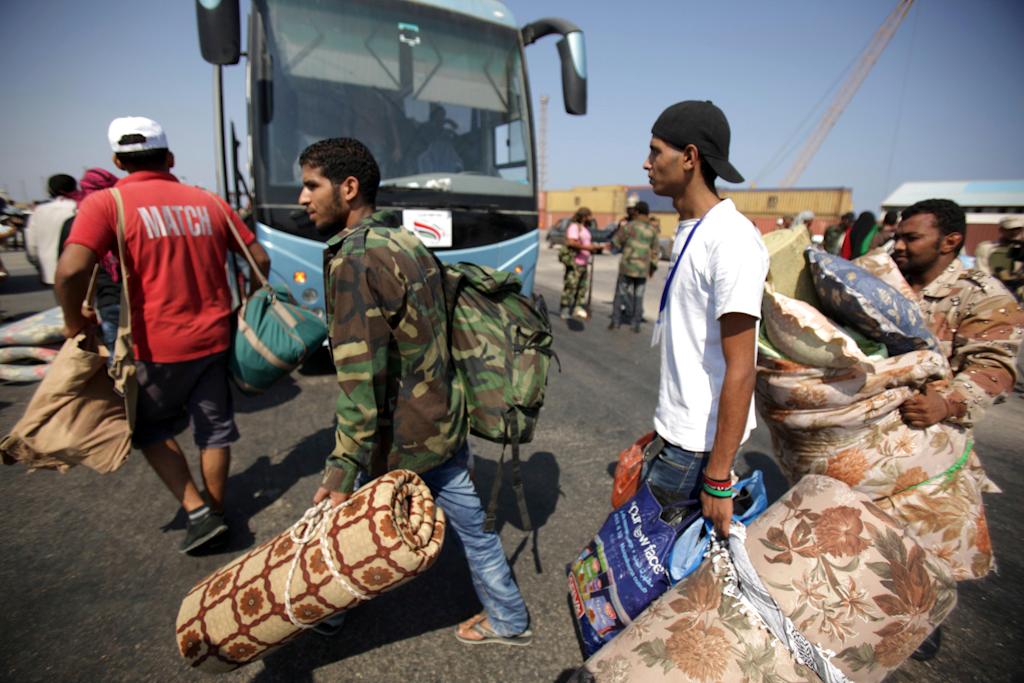Libya votes to keep religion out of politics
Libyan rebels from Benghazi disembark from a ship at the harbour of Tripoli to reinforce opposition forces in the capital on August 27, 2011, as fighting was still under way on various fronts in Libya, with the insurgents working to consolidate their hold on Tripoli and its suburbs. Muammar Gaddafi has offered to enter into negotiations with the rebels over the formation of a transitional government, according to reports.
Two months before Libya is set to have its first general elections since Libyan dictator Muammar Gaddafi was overthrown last year, the country's ruling National Transitional Council issued a surprise new law today that's meant to keep religion out of politics. The law bans political parties that are based on religious principles, the Associated Press reported.
“Parties shouldn’t be based on ethnic or religious ideologies,” spokesman Mohammed al-Hareizi told the AP. “We don’t want the government to be divided by these ideological differences.”
More from GlobalPost: Promises, pitfalls await investors in Burma’s frontier
In March, Libya's Muslim Brotherhood and other Islamists formed a new political party, called the Freedom and Development party, but it is unclear how this new law will affect the party, BBC News reported. The party is Libya's most organized political group, and analysts had expected it to be an influential new player in Libya's politics.
After Arab Spring, Islamists have performed strongly in post-uprising elections in Tunisia, Egypt and Morocco. Libya's own National Transitional Council has previously indicated that the country will be run in accordance with sharia, the religious law of Islam, Reuters reported.
The Muslim Brotherhood spoke out against the new law. "This kind of clause is only useful in countries where there exists many religions, not in Libya where most people are religious Muslims," a spokesman for the Freedom and Development party told Reuters.
But others welcomed the new ban, the Daily Telegraph reported.
The article you just read is free because dedicated readers and listeners like you chose to support our nonprofit newsroom. Our team works tirelessly to ensure you hear the latest in international, human-centered reporting every weekday. But our work would not be possible without you. We need your help.
Make a gift today to help us reach our $25,000 goal and keep The World going strong. Every gift will get us one step closer.
